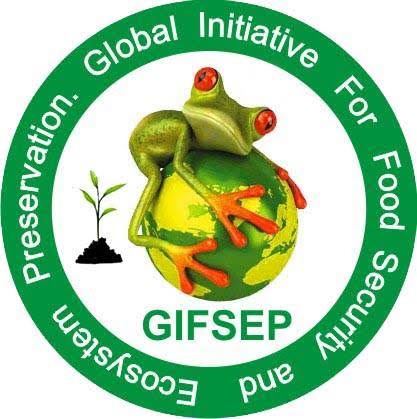An NGO, the Global Initiative for Food Security and Ecosystem Preservation (GIFSEP), has urged traditional and religious leaders to join in raising awareness about the effects of climate change in the country.
The call was made by Mr David Terungwa, Executive Director of the NGO, at a book launch and capacity building in schools on climate change on Thursday in Abuja.
Terungwa wrote the book, “Understanding Climate Change: A Guide for Schools in Nigeria,” with the help of the organization’s staff.
Terungwa stated that the organization chose approximately 13 Government Secondary Schools in the FCT to demonstrate practical activities focusing on how to address environmental challenges.
He stated that the goal of the capacity building was also to implement some practical actions on better ways to address climate change, which he stated was one of the country’s major environmental challenges.
Our religious and traditional institutions, he believes, should be committed to raising effective awareness about the impact of climate change in the country.
“You know how much our people respect our traditional and religious leaders in the country, so imagine when they join hands and come up to speak on these issues, it will go a long way toward addressing the challenge.”
We need strong awareness because it is the only way to solve climate change issues. There is no amount of awareness that is sufficient; we must continue to raise awareness among people in our own small way.
“The goal of the school exhibition is for children to understand the impact of climate change, think about the best ways to solve problems, and then come up with their own ideas.”
“So, we felt that by involving children, we could address climate change and other environmental issues, which is why we chose to use them,” he explained.
Terumgwa stated that the organization was motivated to publish the book because the youth were a key tool in combating climate change in the country.
He stated that the book focuses primarily on youths in order for them to apply climate change issues to their activities at their various homes, schools, and other locations around them.
He, on the other hand, urged other relevant stakeholders to work with the government to raise effective awareness about climate change, as well as to make greater efforts to provide strategies for addressing other environmental issues in the country.
Mrs Ibironke Olubamise, National Coordinator, Global Environmental Facilities (GEF)/Small Grants Programme, stated that the program’s goal was to educate students about the effects of climate change.
“The idea is that they are tomorrow’s leaders, so if they get the idea now, it will be easier for them to handle or address climate change in the future.”
Olubamise stated that the goal of releasing the book was to make environmental issues a part of the school curriculum, and that the effort would aid in addressing environmental challenges.
In addition, Mr Richard Nzekwu, a climate change specialist who previewed the book, stated that the government was developing a number of programs to address climate change, and that the publication of the book would help the government.
According to Nzekwu, the book was created not just for reading, but also to gain more knowledge that can be used to combat climate change in the country.
“It is not only to read the book, but also to put into action those things that could help to mitigate the impact of climate change by planting trees and ensuring that the trees are maintained,”.
One of the students who presented a project on how human activities affect the environment, Master Chidiebere Ajah of Government Secondary School, Gwagwa, urged Nigerians to avoid such activities that could harm the environment.
Miss Amarachi Igwe of Government Secondary School, Nyanya, also spoke, urging the government to work with other relevant stakeholders to effectively address environmental issues in the country.
